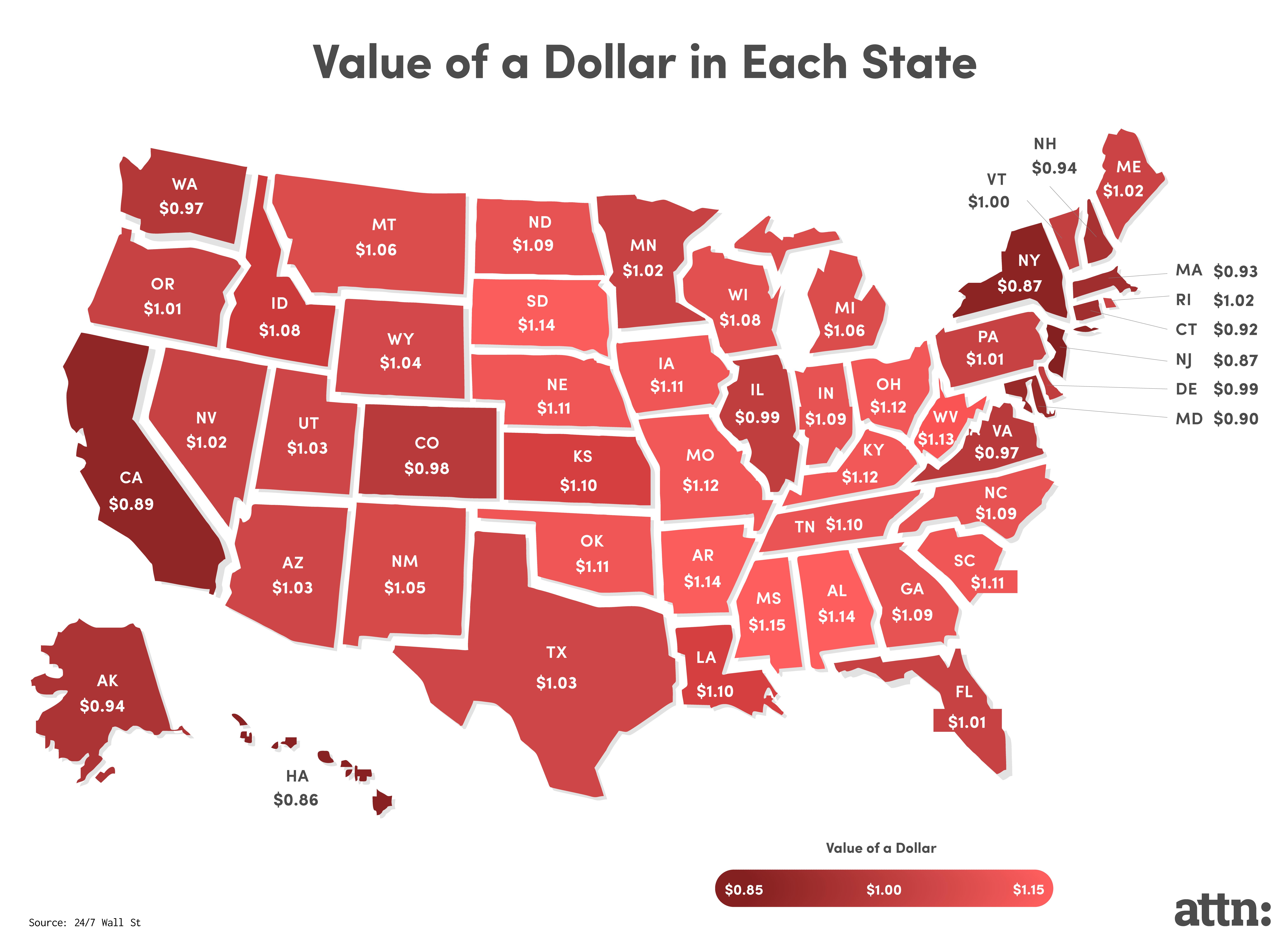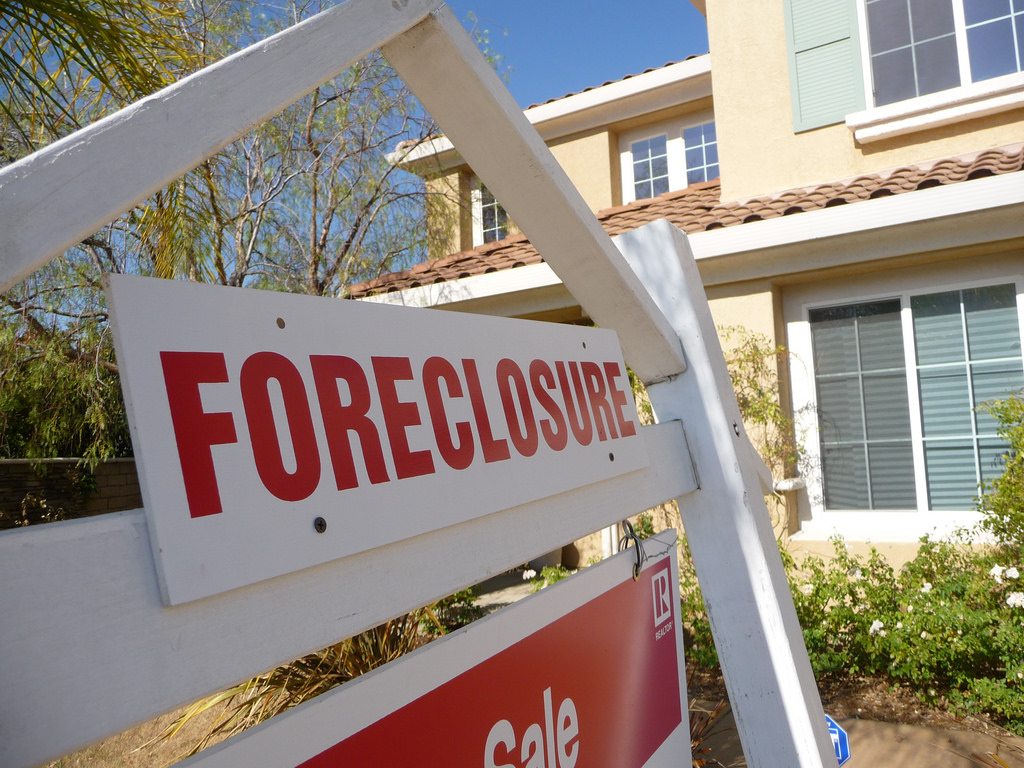The Value of One Dollar in Each State

By:
How far your dollar stretches really depends upon where you live.
To calculate the value of a dollar, you have to consider a few economic factors, including housing costs and the cost of living (i.e. the average price of food and goods) generally. The finance website 24/7 Wall St. did just that, using 2014 data from the U.S. Bureau of Economic Analysis to determine the value of a dollar in each state.

There are several identifiable trends of note. For example, your dollar tends to stretch further in states where the median income is low — because low incomes are generally associated with a lower cost of living. Just look at Mississippi, which has the highest poverty rate and lowest median income nationally: a dollar there is worth $1.15 "compared to the national average cost of goods and services," according to the 24/7 Wall St.report.
Hawaii, meanwhile, has the highest cost of living in the U.S. according to an analysis of regional price parities, which measures cost differences of various goods and services across states. You dollar is worth just $0.86 in the Aloha State.
"In the five years through 2013, the value of a dollar increased in every state — and nationwide," 24/7 Wall St. reports. "While this may sound positive, the reasons for the higher dollar value were mostly related to the housing crash. The states with the largest increases in the value of a dollar also had among the largest median home price drops between 2008 and 2013."
Now, just because the “value” of a dollar changes in proportion to housing costs, that doesn’t necessarily mean that the 2008 housing crash gave every American more spending power.
 Jeff Turner / Flickr - flickr.com
Jeff Turner / Flickr - flickr.com
The housing market doesn’t directly affect the cost of goods and services, so unless an individual was looking for a home post-crash, their dollar didn’t stretch any further as a result.
Interestingly, the value of a dollar barely budged in North Dakota. That's likely due to the fact that the state experienced an economic boom from the oil industry, which caused median housing prices to increase by 38.1 percent between 2008 and 2013.
